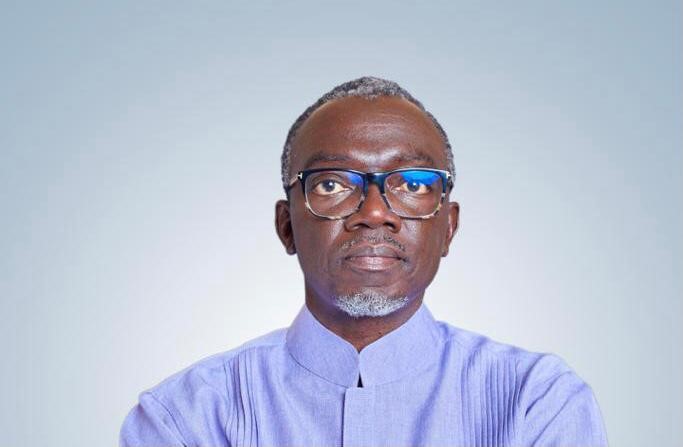According to the 2022 United Nations Sustainable Development Goals Report, at the end of 2020, “one-quarter of the global population” were “living in conflict-affected countries.” Forced displacements due to these conflicts continue to grow, with a record number of 100 million people being forcibly displaced across the globe.
The cost of these conflicts is high, “affecting the poor and vulnerable the most and leading to global impacts and escalating human rights violations and humanitarian needs” (UN Sustainable Development Goals Report, 2022).
Defenders of fundamental freedoms and human rights are threatened “with 320 fatal attacks against human rights defenders, journalists and trade unionists recorded in 35 countries in 2021” (UN Sustainable Development Goals Report, 2022).
Goal 16 of the United Nations Sustainable Development Goals is to promote peace, justice and strong institutions that support promoting peaceful and inclusive societies free from all forms of violence.
Related to this goal, the United Nations explains that “high levels of armed violence and insecurity have a destructive impact on a country’s development. Sexual violence, crime, exploitation and torture are prevalent where there is conflict or no rule of law. In an attempt to find solutions to these problems, Goal 16 has the following targets:
- Significantly reduce all forms of violence and related death rates everywhere
- End abuse, exploitation, trafficking and all forms of violence against and torture of children
- Promote the rule of law at the national and international levels and ensure equal access to justice for all
- By 2030, significantly reduce illicit financial and arms flows, strengthen the recovery and return of stolen assets and combat all forms of organized crime
- Substantially reduce corruption and bribery in all their forms
- Develop effective, accountable and transparent institutions at all levels
- Ensure responsive, inclusive, participatory and representative decision-making at all levels
- Broaden and strengthen the participation of developing countries in the institutions of global governance
- By 2030, provide legal identity for all, including birth registration
- Ensure public access to information and protect fundamental freedoms under national legislation and international agreements
- Strengthen relevant national institutions, including through international cooperation, for building capacity at all levels, in particular in developing countries, to prevent violence and combat terrorism and crime
- Promote and enforce non-discriminatory laws and policies for sustainable development
“The United Nations recorded at least 13,842 deaths associated with 12 of the world’s deadliest armed conflicts in 2021. Among them were 11,075 civilians, and 1 in 8 were women or children” (UN Sustainable Development Goals Report, 2022). These numbers serve as a stark reminder of the urgent need for immediate action to end such violence and protect those most at risk.
Despite these high numbers, the report notes that “the number of civilian conflict-related deaths dropped by 17 per cent compared to 2020 and 69 per cent compared to 2015.”
The report explains that “in May 2022, the number of people forced to flee conflict, violence, human rights violations and persecution has surpassed 100 million.
In 2021, 41 percent of people forcibly displaced were children. “Children, in particular, have suffered immeasurable damage and disruption to their lives and development due to conflict, enduring physical and sexual violence, unmet basic needs, lack of access to education and wide-ranging mental health problems caused by trauma” (UN Sustainable Development Goals Report, 2022).
Human rights violations continue to be a cause for concern in these conflict-affected countries, with human trafficking and forced labour increasing and international humanitarian law being disregarded. While the immediate impact of war and conflict goes without saying, there are other less obvious consequences of a lack of peace and justice.
The report explains that “the outbreak of war in Ukraine has caused food, fuel and fertilizer prices to skyrocket, disrupted supply chains and global trade and roiled financial markets, potentially leading to a global food crisis.”
In addition to this, war and conflict are expensive. “Over the last decade, the world has spent US$349 billion on peacekeeping, humanitarian relief and refugee support” (UN Sustainable Development Goals Report, 2022).
According to the United Nations, “ending armed conflicts, strengthening institutions and enacting inclusive and equitable legislation that protects the human rights of all persons are necessary preconditions for sustainable development” (UN Sustainable Development Goals Report, 2022).
Governments, civil society and communities worldwide must come together to find solutions to facilitate peace, justice and effective, inclusive and accountable institutions.
Ending ongoing conflict and insecurity is reliant on “strengthening the rule of law and promoting human rights”, thereby “reducing the flow of illicit arms, combating corruption, and ensuring inclusive participation at all times” (UN Sustainable Development Goals Report, 2022).
The United Nations Sustainable Development Goals Report for 2022 has shed light on this deeply concerning issue, calling for global attention and collective efforts towards achieving peace and stability worldwide. Governments and international organisations must work tirelessly together to prevent further loss of life and ensure the safety and well-being of all affected communities.
>>>The writer is an international chartered director and Africa’s first-ever appointed Professor Extraordinaire for Industrialisation and Supply Chain Governance. He is the CEO of PanAvest International and the founding non-executive chairman of MY-future YOUR-Future and OUR-Future (“MYO”) and the “thought-provoking” daily Nyansa Kasa (words of wisdom) series. Professor Boateng is currently the non-executive chairman of the Minerals Income and Investment Fund (MIIF). He was previously the non-executive chairman of the Public Procurement Authority (PPA). For more information on Nyansakasa, visit www.myoglobal.org and www.panavest.com










